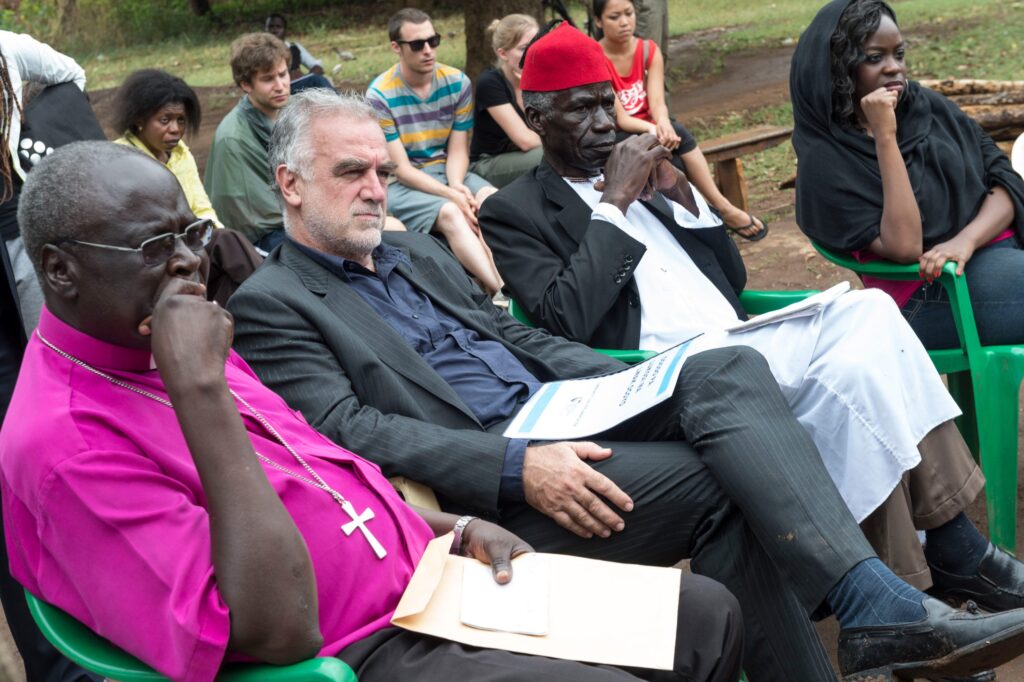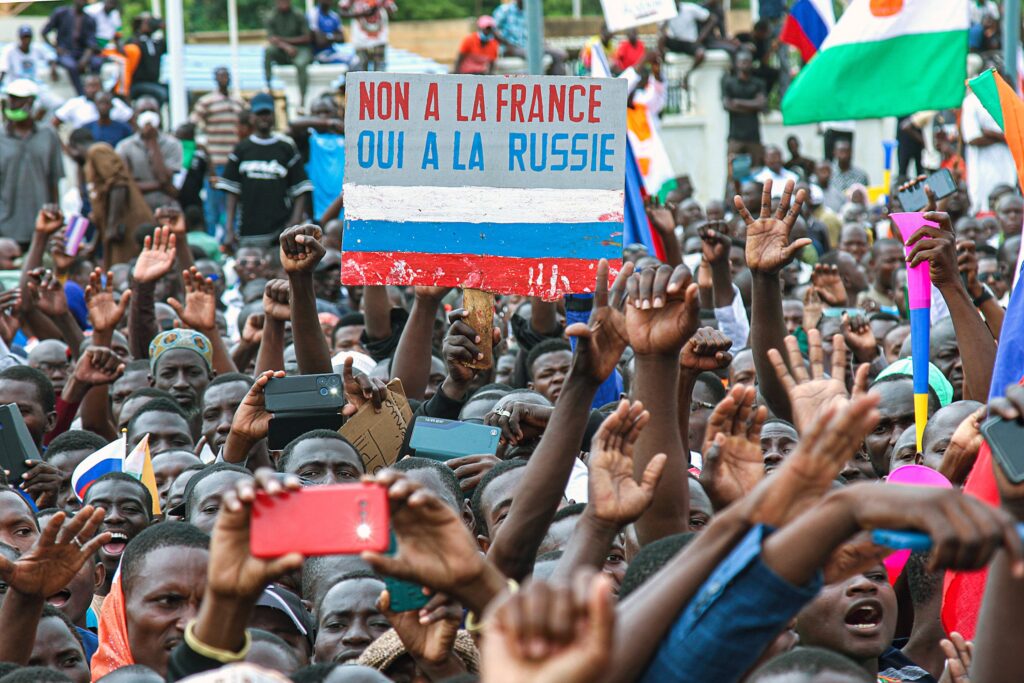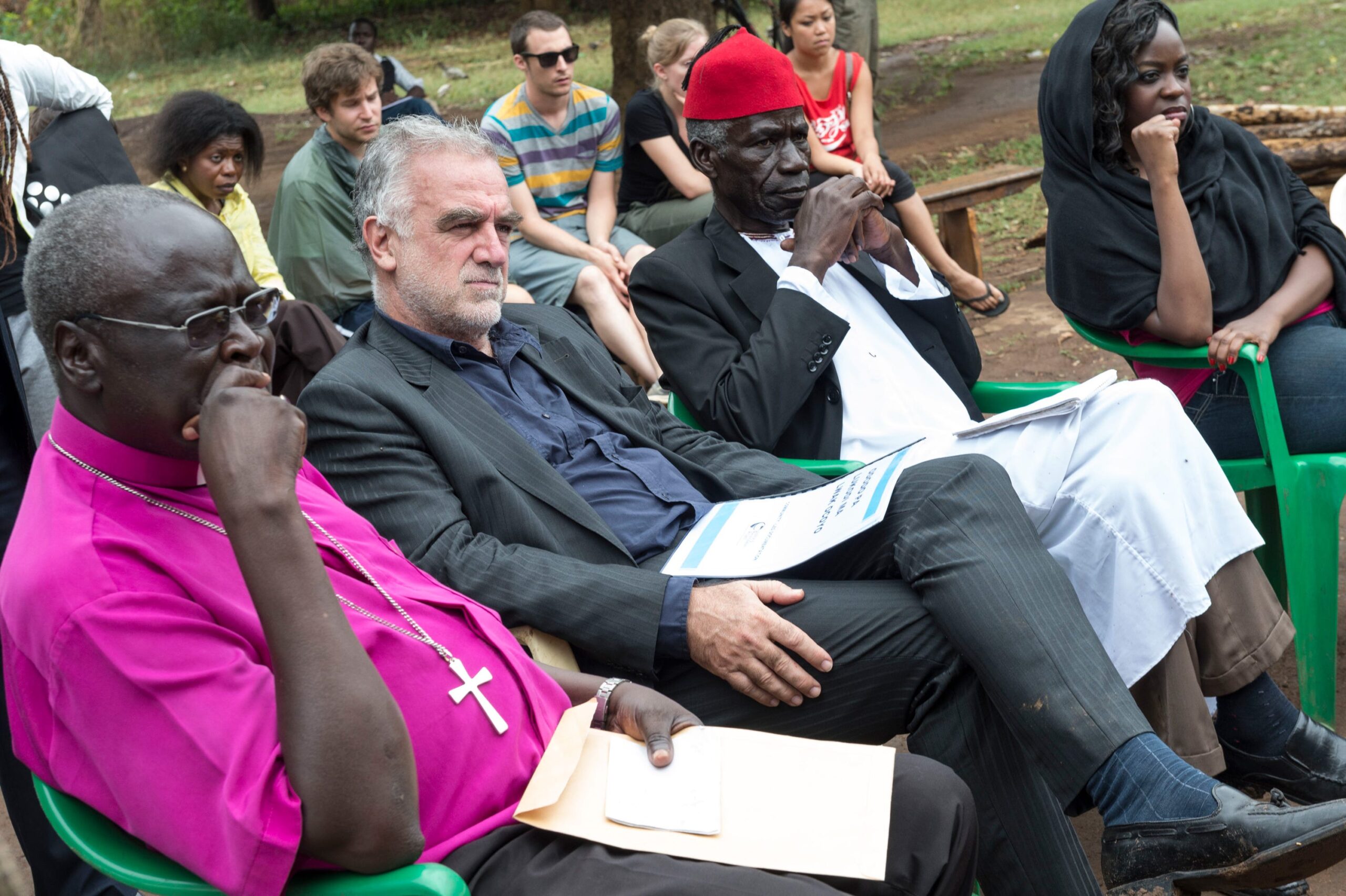The first prosecutor of the International Criminal Court, the Argentine Luis Moreno Ocampo, has penned for The Ideas Letter a thorough-going essay (and response to Open Society Foundations President Emeritus Aryeh Neier) about the recent history of international justice. In Moreno Ocampo’s telling, blame for the failures of the ICC, and international justice generally, lie squarely with the United States. To what extent he is skirting responsibility for the shortcomings of the ICC on his watch is left to you, dear reader.
Next up is a commissioned piece by the fine Nigerian-British writer and journalist, Adéwálé Májà-Pearce. Májà-Pearce has long been unrelenting, especially in the pages of the London Review of Books, in his critique of the cruel corruption that pervades Nigeria. Here he takes his analytical scalpel to the Economic Community of West African States (ECOWAS) and addresses thorny questions about the organization’s geopolitical present and future.
Our curated content leads with the political scientist Daniel Treisman and his novel approach to thinking about democracy. Rather than the rational-actor model favored by many of Treisman’s colleagues, or the modernization theory favored by his predecessors, Treisman’s approach is far simpler and thus highly suggestive. This is followed by David Autor’s Noema essay, which takes a critical though technologically optimistic view of AI and the middle class. There’s a specter hovering around AI, Autor points out, but that specter is wildly misplaced.
The new economy is front and center in Jessica Traynor’s tour de force Dial essay, which explains how data centers in Ireland and our climate and sustainability worries are sometimes inextricably bound together. Finally, we feature a conversation between a cultural ecologist and a mycologist from Emergence Magazine that asks whether selfhood is a better descriptor of life than personhood. Should human rights be only for human beings?
Our musical selection for this edition of The Ideas Letter is the greatest of Soviet war songs, Tyomnaya Noch’ (Dark Night), from 1943. Dark Night was perhaps balladeer Mark Bernes’ greatest achievement. You’ll find English subtitles embedded in the video. Enjoy and see you in a fortnight!
—Leonard Benardo, senior vice president at the Open Society Foundations
International Justice and Global Order in the 21st Century

Luis Moreno Ocampo
The Ideas Letter
Essay
Despite fierce opposition from the United States, the Rome Statute that created the International Criminal Court forged the architecture of an innovative system of international justice, which by its very existence counters realist claims that international relations must be anarchic. The result: a paradigm shift of the international order.
“The innovative international criminal justice system, aimed at constraining power, conflicts with the old system of leaders imposing their will through violence. The U.S. preferred policy of war to manage conflict is failing in Afghanistan, Iraq, Syria, in the case of Russia’s aggression in Ukraine, and Israel’s bombing of Gaza and starvation of its residents. … The decision to use war reveals a blind spot, impervious to facts. … The U.S. expert community knows that the military model to face international terrorism is not working, but it cannot discuss a different paradigm.”
Further Reading
Wars of De-Civilization: Anti-democratic Regimes and the Politics of Annihilation
Hamit Bozarslan, Eurozine (First published by Esprit, translated and edited by Cadenza Academic Publications.)
A common element in the increased frequency and brutality of armed conflict in the Middle East and Eastern Europe—from Syria at the hands of the Assad regime to the massacre committed by Hamas and the war in Gaza—“is the involvement of anti-democratic regimes, either locked in cut-throat competition or engaged in close collaboration” and acting under the belief that “the Westphalian system is giving way to the rule of strength and extortion.”
“In each of these examples, the logic of sovereignty has nothing to do with the system of international law that divides the world into state-controlled territories. … The wars being waged in the name of these sovereign ethnic/national and non-state entities are wars of de-civilization. Civilization is a contradictory process that imposes limitations, especially when it comes to the use of violence against others. But in return it allows us to orient ourselves more securely in time and space. No society can exist if it is restricted to stasis or has its mobility limited, if it doesn’t have a past to draw on as a resource, or as a way to project itself into the future. But neither can a society exist if its authorities, militias, and affiliated paramilitary groups resort to violence at will, resulting in all-out war and the rejection of universal values.”
Whither ECOWAS? Whither Africa?

Adéwálé Májà-Pearce
The Ideas Letter
Essay
The Economic Community of West African States (ECOWAS) recently lifted economic and border-related sanctions imposed on Niger, Burkina Faso, and Mali, after the Sahelian nations threatened to withdraw from the trade bloc, accusing it of bowing to the “influence of foreign powers.” All three nations are under military rule following coups since 2020, and have leaned towards alliances with Russia and, to a lesser degree, China—a counter to what they call French neocolonialism. Plagued by democratic shortcomings and governance travails, the countries of the region must pull closer together and address ECOWAS inconsistencies in its assumed role as democracy’s defender, argues Májà-Pearce, referring to the long shadow of colonialism that continues to impact the world’s dealings with Africa.
“That we have been bundled into arbitrary countries named by the colonialists—ECOWAS occupies an area half that of the United States—hardly helps. Indeed, it was because of the very arbitrariness of those boundaries, across which the inhabitants freely traversed with their cattle and their skills, that ECOWAS was founded in the first place. I believe that our brothers and sisters in the Sahel will not leave us because they have nowhere else to go. ECOWAS must become ever closer to realizing the vision of the original treaty. So, too, must the continent itself, which is our only salvation in the world we inhabit. And we aren’t even as populous as China or India. But there is nothing new in this. Kwame Nkrumah said it in 1956, as he celebrated the independence of the Gold Coast he renamed Ghana: ‘Our independence is meaningless unless it is linked up with the total liberation of Africa.’”
Further Reading
African Unity Can’t Take Place on France’s Terms
interview with Ndongo Samba Sylla, Jacobin
The decision by Niger, Burkina Faso, and Mali to withdraw from ECOWAS “is essentially explained by the lack of solidarity on the part of the latter in their fight against jihadist terrorism and separatist groups, and by the imposition of harsh commercial and financial sanctions that are clearly instigated by France and its African allies such as Côte d’Ivoire, Benin, and Senegal,” according to the economist Ndongo Sama Sylla.
“ECOWAS lacks the political legitimacy to play the role of policeman. Critics generally describe it as a union of heads of state who are rarely models of leadership within their own countries and who do not always respect or implement decisions from the ECOWAS judicial court. How credible is an institution composed of leaders who blithely violate their own constitutions, imprison opponents and activists, use force to kill demonstrators, and organize fraudulent elections? What further damages ECOWAS’s credibility and trustworthiness is the popular perception that its unhuman sanctions are orchestrated from the outside. The African peoples want economic integration, but they don’t want a subservient and arbitrary ECOWAS.”
Democracy by Mistake
Daniel Treisman
Asterisk
Essay
Political science has struggled to explain the exponential pace of democratization in the world—from five electoral democracies in 1900 to 90 in 2022. There are two main schools: Marxism focuses on economic development, while proponents of rational choice argue that rulers democratize because they believe it is in their interest. However, a systematic examination “suggests democracy emerges as often as not by another path: human error,” according to Treisman, who concludes that while it does “sometimes emerge through irresistible revolutions or the deliberate decisions of incumbents,” three quarters of the time “change came because the ruler made a mistake.”
“In 1848, after Parisian mobs stormed the Tuileries Palace, France’s King Louis Philippe I had to shave off his whiskers and flee to England in disguise. A ragbag provisional government then called an election with close to universal suffrage. This was hardly unavoidable. In fact, the pressure only escalated to street protests after the government banned a banquet organized by the opposition — and then again after troops shot dead several dozen protesters. As rioting spread, Adolphe Thiers, who Louis Philippe had appointed to form a new government, begged the king to approve a franchise reform that would have increased suffrage from about 0.5% to just 0.8% of the population — and likely returned calm to the streets. Even the reformers whose banquet was banned were asking only for 1%! Yet the king refused point-blank. The revolution caught everyone by surprise. Alexis de Tocqueville, who served in the provisional government, wrote later that he had heard all three of Louis Philippe’s closest advisors describe the events as ‘a pure accident.’ The revolutionaries were, Tocqueville wrote, ‘as astonished by their victory as the defeated were by their loss.’”
AI Could Actually Help Rebuild the Middle Class
David Autor
Noema
Essay
An optimistic take on how artificial intelligence will create new opportunities for a middle class that has been automated out of existence by the transformations wrought by computing, which concentrated expertise and decision making in fewer hands, pushing less qualified workers to low paid service jobs and creating a socio-economic chasm of inequality. In Autor’s reading, AI will aid the industrialized world’s worker shortage. And, akin to the way the Industrial Revolution made consumer goods more accessible, AI could expand access expensive “essential services like healthcare, higher education and law, that are monopolized by guilds of highly educated experts.”
“The unique opportunity that AI offers humanity is to push back against the process started by computerization—to extend the relevance, reach and value of human expertise for a larger set of workers. Because artificial intelligence can weave information and rules with acquired experience to support decision-making, it can enable a larger set of workers equipped with necessary foundational training to perform higher-stakes decision-making tasks currently arrogated to elite experts, such as doctors, lawyers, software engineers and college professors. In essence, AI—used well—can assist with restoring the middle-skill, middle-class heart of the U.S. labor market that has been hollowed out by automation and globalization.”
Memory Machines
Jessica Traynor
The Dial
Essay
Data centers have been heralded by champions as the cornerstone of a new economy for a post-housing-and-banking-crisis Ireland. Traynor explores the construction of the environmentally costly centers—if all the data centers currently proposed in the country are built, they could use up to 70 percent of the country’s electricity by the end of the decade—from the perspective of the country’s own memory failures. From the destruction of centuries of public records in the Civil War to the instability of digital files, the author complicates our understanding of what it is to preserve data, and at what cost.
“All that material floating around in the cloud—which is in reality being bounced from server to server, degrading each time this happens—is not really being preserved in the way we might imagine. Its continued existence is dependent on a steady flow of electricity, the continued provision of which is contingent upon governments reaching renewables targets they can’t agree upon. And even then, these files will degrade, deteriorate and become obsolete. Rather than creating something permanent and inviolable, we’ve made our memories more contingent than ever upon a fantasy of technological stability that, given the constant churn of history, seems inevitably fleeting.”
Honoring the Wild Proliferation of Earthly Perspectives
interview with Merlin Sheldrake and David Abram
Emergence Magazine
Interview
“Exploring the many kinds of selves that compose our breathing biosphere, cultural ecologist David Abram and mycologist Merlin Sheldrake assert the selfhood and agency of the fluxing multitudes with whom we share the Earth. Published in partnership with the More Than Human Rights (MOTH) Project, and following the project’s inaugural symposium, this conversation reimagines the legal frameworks through which we define rights and well-being for the more-than-human web of life.”
David Abram wonders “if a more useful juridical designation for rights-holders—one that sidesteps the human-centered associations of personhood and the overly passive and floating sense of beinghood—might be selfhood. Having or being a self, in common parlance, signifies something rather more focused and agential than simply having being; a self is the sort of subject-like presence that one would readily associate with having rights. Selfhood implies the capacity to act, and to experience, to feel and to suffer and to enjoy as well. Selfhood conveys just what many folks seem to want to convey by using personhood, but without the human-centered overtones. And yet self remains a remarkably open and democratic notion, a quality accessible to any and all things, since—at least in English—we can affirm of anything (woodland, wetland, toad, boulder, compost heap, beehive, or eroding mountain) that it manifestly is itself, or its self.”
